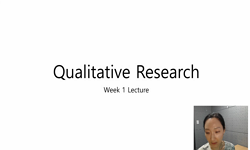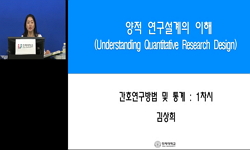Asia and the Pacific have been increasingly becoming home to a very large proportion of older persons. It is also known that women are the majority of the senior population in most countries and age differently from men. This study aims to understand ...
http://chineseinput.net/에서 pinyin(병음)방식으로 중국어를 변환할 수 있습니다.
변환된 중국어를 복사하여 사용하시면 됩니다.
- 中文 을 입력하시려면 zhongwen을 입력하시고 space를누르시면됩니다.
- 北京 을 입력하시려면 beijing을 입력하시고 space를 누르시면 됩니다.
https://www.riss.kr/link?id=A101028084
-
저자
Li-Kuang CHEN (National Cheng Kung University, Taiwan)
- 발행기관
- 학술지명
- 권호사항
-
발행연도
2015
-
작성언어
English
-
주제어
女性 ; 成功老化 ; volunteerism ; qualitative research ; Asian culture ; successful aging ; 亞洲文化 ; 質性研究 ; 志願服務 ; successful aging
-
KDC
337.000
-
등재정보
KCI등재,SSCI,SCOPUS
-
자료형태
학술저널
-
수록면
215-231(17쪽)
-
KCI 피인용횟수
4
- 제공처
- 소장기관
- ※ 대학의 dCollection(지식정보 디지털 유통체계)을 통하여 작성된 목록정보입니다.
-
0
상세조회 -
0
다운로드
부가정보
다국어 초록 (Multilingual Abstract)
Asia and the Pacific have been increasingly becoming home to a very large proportion of older persons. It is also known that women are the majority of the senior population in most countries and age differently from men. This study aims to understand what successful aging means to elderly women in Taiwan, a country where the proportion of the elderly population has become the largest in Southeast Asia since 1990. In-depth interviews with 14 older female volunteers were analyzed to identify the components of successful aging. The respondents defined successful aging as follows: (1) being healthy, (2) having no financial worries, (3) maintaining connections with family and friends, (4) contributing to society, and (5) desiring a good death, not longevity. Gender roles and Asian culture were seen to be intertwined with these women’s perceptions, which contribute to rethinking existing models and literature in both gerontology and women’s studies. The findings of this study can also facilitate better programs and services for women so that they can reach a good old age.
다국어 초록 (Multilingual Abstract)
亞太地區為全球高齡人口比例最高的區域, 由於女性在大多數國家是高齡人口的主要組成, 且女性老化的歷程與男性不同, 是以, 本研究以自1990年起老年人口比例佔東南亞之首的台灣為研究場...
亞太地區為全球高齡人口比例最高的區域, 由於女性在大多數國家是高齡人口的主要組成, 且女性老化的歷程與男性不同, 是以, 本研究以自1990年起老年人口比例佔東南亞之首的台灣為研究場域, 研究目的在瞭解高齡女性的成功老化感知。藉由深度訪談14位高齡女性志工, 本研究發現高齡女性認為成功老化必備的元素包括: (1)健康、(2)沒有經濟上的煩惱、(3)與家人及朋友保持良好互動連繫、(4)貢獻社會、及(5)善終。上述發現及針對其背後考量中因著女性角色與亞洲文化之影響的討論, 有助對現今老年學及女性研究的理論模型及文獻進一步再做思考, 並促進對女性得到好命老年的更適切方案與服務之擬定。
목차 (Table of Contents)
- Introduction
- Exploring SA is a must for women
- Existing SA models and women
- Methods
- Findings
- Introduction
- Exploring SA is a must for women
- Existing SA models and women
- Methods
- Findings
- Discussion
- Conclusions
- References
참고문헌 (Reference)
1 United Nations., "World population prospects: The 2012 revision"
2 Bowling, A., "Which model of successful ageing should be used? Baseline findings from a British longitudinal survey of ageing" 35 : 607-614, 2006
3 Bowling, A., "What is successful ageing and who should define it?" 331 (331): 1548-1551, 2005
4 Kendig, H., "The social sciences and successful aging: Issues for Asia–Oceania" 4 (4): S6-S11, 2004
5 Baltes, M. M., "The process of successful ageing" 16 : 397-422, 1996
6 Glaser, B. G., "The discovery of grounded theory" Aldine 1967
7 Ford, A. B., "Sustained personal autonomy : A measure of successful aging" 12 (12): 470-489, 2000
8 Baltes, P. B., "Successful aging: Perspectives from behavioral science" Cambridge University Press 1-34, 1990
9 Strawbridge, W. J., "Successful aging and wellbeing : Self-rated compared with Rowe and Kahn" 42 (42): 727-733, 2002
10 Martinson, M., "Successful aging and its discontents : A systematic review of the social gerontology literature" 55 (55): 58-69, 2015
1 United Nations., "World population prospects: The 2012 revision"
2 Bowling, A., "Which model of successful ageing should be used? Baseline findings from a British longitudinal survey of ageing" 35 : 607-614, 2006
3 Bowling, A., "What is successful ageing and who should define it?" 331 (331): 1548-1551, 2005
4 Kendig, H., "The social sciences and successful aging: Issues for Asia–Oceania" 4 (4): S6-S11, 2004
5 Baltes, M. M., "The process of successful ageing" 16 : 397-422, 1996
6 Glaser, B. G., "The discovery of grounded theory" Aldine 1967
7 Ford, A. B., "Sustained personal autonomy : A measure of successful aging" 12 (12): 470-489, 2000
8 Baltes, P. B., "Successful aging: Perspectives from behavioral science" Cambridge University Press 1-34, 1990
9 Strawbridge, W. J., "Successful aging and wellbeing : Self-rated compared with Rowe and Kahn" 42 (42): 727-733, 2002
10 Martinson, M., "Successful aging and its discontents : A systematic review of the social gerontology literature" 55 (55): 58-69, 2015
11 Rowe, J. W., "Successful aging" 37 (37): 433-440, 1997
12 Wang, Y. T., "Successful ageing : The case of Taiwan" 31 (31): 141-146, 2012
13 United Nations., "Statistics and indicators on women and men: Health-Life expectancy"
14 Day, A. T., "Remarkable survivors : Insights into successful aging among women" Urban Institute Press 1991
15 Torres, S., "Relational values and ideas regarding"successful aging"" 33 (33): 417-424, 2002
16 Patton, M. Q., "Qualitative research & evaluation methods" Sage 2002
17 Caffarella, R. S., "Psychosocial development of women : A critical review of the literature" 43 (43): 125-151, 1993
18 Kim, J., "Productive activity and life satisfaction in Korean elderly women" 25 (25): 80-96, 2013
19 Roos, N. P., "Predictors of successful aging : A twelve-year study of Manitoba elderly" 81 (81): 63-68, 1991
20 Ministry of Interior, R.O.C., "Populations by ages"
21 United Nations., "Population and development factsheets for Asia-Pacific: Preparing for ageing societies in Asia and the Pacific" United Nations 2014
22 Litwin, H., "Perceived income adequacy among older adults in 12countries : Findings from the survey of health, ageing, and retirement in Europe" 49 (49): 397-406, 2009
23 Whitbourne, S. K., "Older women’s constructs of their lives : A quantitative and qualitative exploration" 38 : 293-306, 1994
24 Tornstam, L., "Loneliness in marriage" 9 : 197-217, 1992
25 Friedman, E. M., "Living well with medical comorbidities : A biopsychosocial perspective. The Journals of Gerontology" 67 (67): 535-544, 2012
26 Ohsako, T., "Learning and social participation by senior citizens in Japan: Analysis of major issues from an international perspectives" 1999
27 Ministry of Interior, R.O.C., "Interior national indicators"
28 Rowe, J. W., "Human aging : Usual and successful" 237 (237): 143-149, 1987
29 Liu, S. J., "Health conceptions of older women in Taiwan" 4 (4): 387-396, 1996
30 Moen, P., "Handbook of aging and the social sciences" Academic Press 179-196, 2001
31 Van Willigen, J., "Handbook of Asian aging" Baywood Publishing 117-141, 2006
32 Yount, K. M., "Gender, resources across the life course and cognitive functioning in Egypt" 45 (45): 907-926, 2008
33 Ministry of Interior, R.O.C., "Gender distribution of the population"
34 Hsu, H. C., "Gender disparity of successful aging in Taiwan" 42 (42): 1-21, 2005
35 Moen, P., "Gender disparities in health: Strategic selection, careers, and cycles of control" 60B (60B): 99-108, 2005
36 Zhang, Z., "Gender differentials in cognitive impairment and decline of the oldest old in China" 61B (61B): 107-115, 2006
37 Pinquart, M., "Gender differences in self-concept and psychological well-being in old age: A meta-analysis" 56B : 195-213, 2001
38 Armstrong-Stassen, M., "Gender differences in how retirees perceive factors influencing un-retirement" 75 (75): 45-69, 2012
39 Park, S. M., "Gender differences as factors in successful ageing : A focus on socioeconomic status" 42 (42): 99-111, 2010
40 Tseng, Y., "Gender difference in the aging experience among Taiwan’s older People" 21 (21): 117-126, 2004
41 Garner, J. D., "Feminism and feminist gerontology" 11 : 2-3, 1999
42 Hsu, H. C., "Exploring elderly people’s perspectives on successful ageing in Taiwan" 27 (27): 87-102, 2007
43 Belsky, J., "Encyclopedia of women and gender: Sex similarities and differences and the impact of society on gender" Academic Press 95-107, 2001
44 Torres, S., "Different ways of understanding the construct of successful aging : Iranian immigrants speak about what aging well means to them" 21 : 1-23, 2006
45 Ministry of Interior, R.O.C., "Demographic structure analysis at the end of 2014"
46 Tate, R. B., "Definition of successful aging by elderly Canadian males : The Manitoba follow-up study" 43 (43): 735-744, 2003
47 Victor, C. R., "Continuity or change : Inequalities in health in later life" 11 (11): 23-29, 1991
48 Spiers, N., "Are gender differences in the relationship between self-rated health and mortality enduring? Results from three birth cohorts in Melton Mowbray, United Kingdom" 43 (43): 406-411, 2003
49 Calasanti, T. M., "Age matters : Realigning feminist thinking" Routledge 2006
50 Chen, L. K., "A review and critique of the portrayal of older adult learners in adult education journals, 1980–2006" 59 (59): 3-21, 2008
51 Torres, S., "A preliminary empirical test of a culturally-relevant theoretical framework for the study of successful aging" 18 (18): 79-100, 2003
52 Carr, D. C., "A new paradigm for qualitative research in the United States : The era of the third age" 11 (11): 11-33, 2010
53 Richards, M., "A life course approach to cognitive reserve : A model for cognitive aging and development" 58 : 617-622, 2005
54 Narushima, M., "A gaggle of raging grannies : The empowerment of older Canadian women through social activism" 23 (23): 23-42, 2004
55 Torres, S., "A culturally-relevant theoretical framework for the study of successful ageing" 19 : 33-51, 1999
56 Glass, A. P., "A cross-cultural comparison of hospice development in Japan, South Korea, and Taiwan" 25 : 1-19, 2010
동일학술지(권/호) 다른 논문
-
Reproducing hybridity in Korea
- 이화여자대학교 아시아여성학센터
- Amelia L. SCHUBERT
- 2015
- KCI등재,SSCI,SCOPUS
-
Women’s coping strategies and help-seeking practices
- 이화여자대학교 아시아여성학센터
- Anisur Rahman KHAN
- 2015
- KCI등재,SSCI,SCOPUS
-
Negotiating responsibilities and relationships
- 이화여자대학교 아시아여성학센터
- Sakshi KHURANA
- 2015
- KCI등재,SSCI,SCOPUS
-
The effects of expanded universal childcare support and working mothers in Korea
- 이화여자대학교 아시아여성학센터
- Heesuk YUN
- 2015
- KCI등재,SSCI,SCOPUS
분석정보
인용정보 인용지수 설명보기
학술지 이력
| 연월일 | 이력구분 | 이력상세 | 등재구분 |
|---|---|---|---|
| 2023 | 평가예정 | 해외DB학술지평가 신청대상 (해외등재 학술지 평가) | |
| 2020-01-01 | 평가 | 등재학술지 유지 (해외등재 학술지 평가) |  |
| 2014-02-11 | 학술지명변경 | 한글명 : Asian Journal of Women`s Studies -> Asian Journal of Women's Studies |  |
| 2011-01-01 | 평가 | 등재학술지 유지 (등재유지) |  |
| 2009-01-01 | 평가 | 등재학술지 유지 (등재유지) |  |
| 2007-01-01 | 평가 | SSCI 등재 (등재유지) |  |
| 2005-01-01 | 평가 | 등재학술지 선정 (등재후보2차) |  |
| 2002-01-01 | 평가 | 등재후보 1차 PASS (등재후보1차) |  |
| 1999-07-01 | 평가 | 등재후보학술지 선정 (신규평가) |  |
학술지 인용정보
| 기준연도 | WOS-KCI 통합IF(2년) | KCIF(2년) | KCIF(3년) |
|---|---|---|---|
| 2016 | 0.2 | 0.16 | 0.19 |
| KCIF(4년) | KCIF(5년) | 중심성지수(3년) | 즉시성지수 |
| 0.2 | 0.18 | 0.356 | 0.08 |






 RISS
RISS







